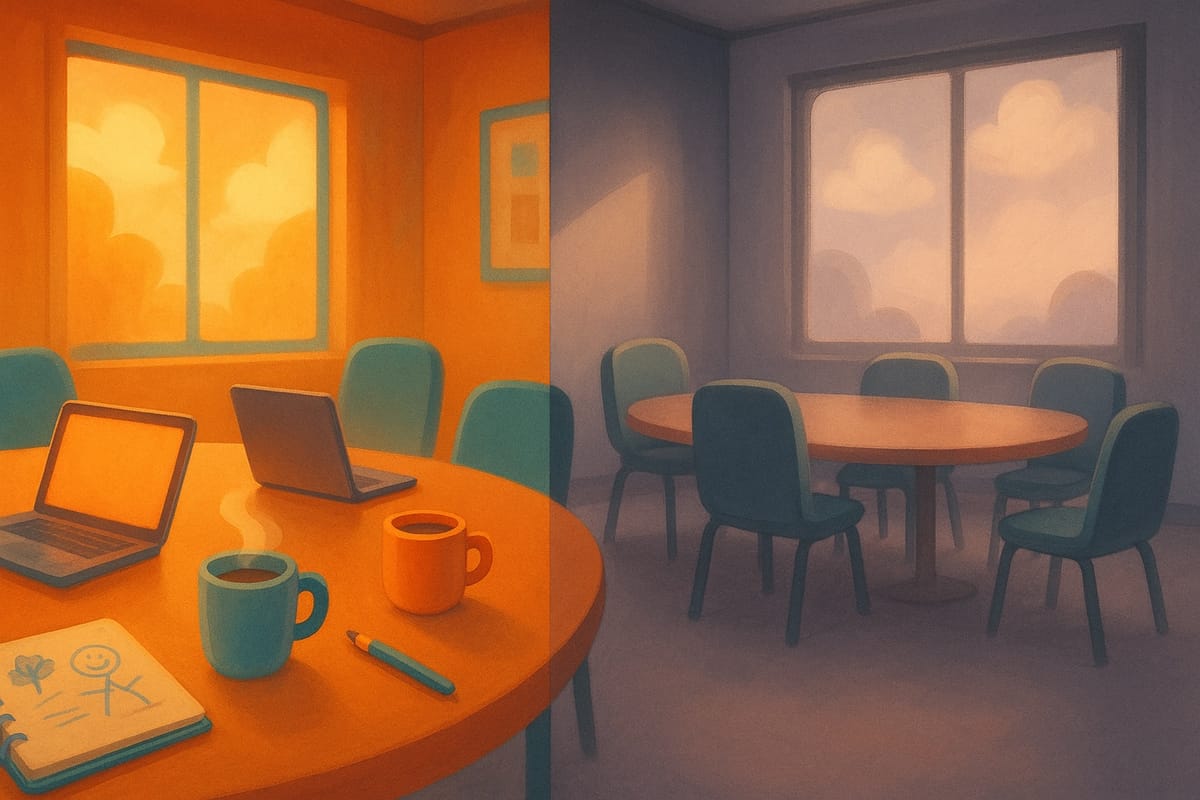The Quiet Aftermath: Post-Project Emotional Transitions

I was reminded by a friend the other day of a moment that arrives with surprising consistency in our industry; that peculiar quiet which settles in after a successful project delivery. The Slack channels fall silent, the video calls cease, and the daily rhythm of collaboration suddenly stops. What follows isn't always the satisfaction you'd expect from a job well done. Instead, there's often something else: a subtle but noticeable void.
After years of leading projects at TSD, I've come to recognise this phenomenon as one of the unspoken realities of our work. The bonds we form during intense collaboration periods -those genuine partnerships built through shared challenges, late-night problem-solving sessions, and collective victories- don't always translate into lasting relationships once the project ends.
The Nature of Project Bonds
Project relationships are rather like those formed during travel. When exploring a new city with strangers, you might find yourself sharing stories, laughs, and memorable experiences with people you'd never typically encounter. The shared context creates instant camaraderie. Yet when the holiday ends, you rarely maintain those connections beyond a few social media exchanges.
Our client partnerships used to follow a similar pattern. The intensity of working towards a common goal creates genuine warmth and mutual respect. We celebrate wins together, navigate obstacles as a team, and often develop what feels like lasting friendships. These relationships are real and valuable -they're actually one of the most rewarding aspects of our work.
However, once the project concludes and everyone returns to their separate organisational orbits, maintaining those connections requires intentional effort that busy professionals don't always have the capacity for.
The Emotional Reality
This transition can create an unexpected emotional impact. You've spent months, even years, building rapport, understanding personalities, and developing working rhythms with a group of people. Then, almost overnight, that social and professional structure disappears.
The effect is similar to finishing a good book or completing a long-running television series -there's a sense of loss for the world you've temporarily inhabited. Your brain, which had adapted to this social and professional ecosystem, suddenly needs to readjust.
For some, this transition passes unnoticed. For others, particularly those who thrive on collaborative energy, it can create a genuine sense of isolation that, if unaddressed, may affect wellbeing and motivation.
Preparing for the Transition
Recognising this pattern doesn't diminish the value of project relationships -quite the opposite. Understanding that most project bonds are contextual rather than permanent allows us to approach them more healthily.
Think of it like seasonal gardening. You plant, nurture, and enjoy the blooms, knowing they're not designed to last forever. This perspective doesn't make the garden less beautiful; it makes you more appreciative of the time you have with it.
Here are some strategies I've found helpful:
Acknowledge the cycle: Accept that feeling deflated after project completion is normal. Your brain is simply adjusting to a new social and professional configuration.
Plan for re-engagement: Before a project ends, consider what will fill that collaborative space next. This might be starting a new project, reconnecting with colleagues, or pursuing personal interests that provide social interaction.
Separate project success from relationship permanence: A project can be brilliantly successful and create wonderful working relationships that naturally fade over time. Both can be true simultaneously.
Value the experience without attachment to outcomes: The learning, growth, and enjoyment you experience during projects has value independent of whether those relationships continue.
The Professional Perspective
This emotional reality doesn't suggest we should become more detached from our clients -far from it. The depth of partnership we develop is precisely what makes our projects successful. Clients choose to work with agencies partly because they want that collaborative energy and shared investment in outcomes.
The key is maintaining professional boundaries whilst still engaging authentically. We can care deeply about our clients' success, enjoy working with their teams, and form genuine professional bonds whilst accepting that these relationships exist within a specific context.
Moving Forward
Understanding this pattern has helped me approach project transitions more gracefully. I now make a point of acknowledging the end of significant client relationships -sometimes with a brief note expressing genuine appreciation for the collaboration, sometimes just with internal reflection on what I've learned from working with particular individuals.
I've also become more intentional about maintaining connections when there's mutual interest and practical value, whilst releasing myself from the expectation that every positive working relationship should evolve into a lasting friendship.
The Value Remains
Project-based work offers unique rewards: the opportunity to solve diverse challenges, work with varied personalities, and experience different organisational cultures. The temporary nature of these relationships doesn't diminish their value -it's simply part of their character.
Each project partnership contributes to our professional development, challenges our assumptions, and often provides those moments of genuine human connection that make our work meaningful. That these connections may not last forever doesn't make them less real or valuable.
The quiet aftermath of project completion isn't something to fear or avoid -it's simply part of the rhythm of our industry. By understanding and preparing for it, we can navigate these transitions more smoothly and continue to engage fully in the partnerships that make our work both challenging and rewarding.
After all, the best collaborations often come from bringing your whole self to the work, knowing that while the project will end, the experience will have been worthwhile.
Have you experienced the same? What coping strategies have you put in place to handle it? I'd be interested to know as although we have the team to get us through it, sure others (especially freelancers) would appreciate knowing they're not alone.
